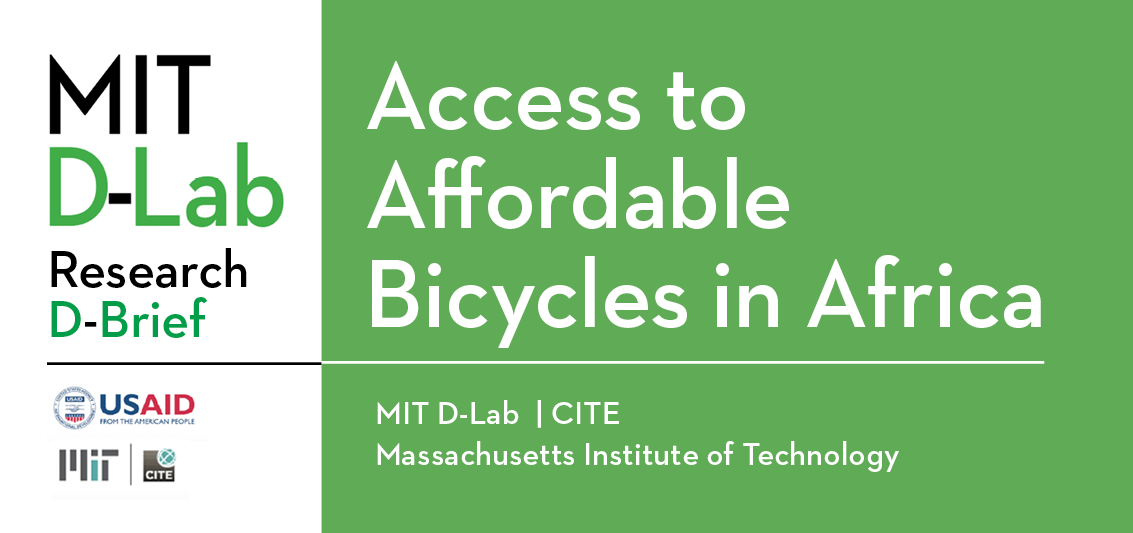
D-Brief: Access to Affordable Bicycles in Africa
Overview
Low-income households in low-income countries face transportation service gaps, especially in rural areas. Public transportation does not always exist and motorized transport is often unaffordable, forcing people to walk long distances to access schools, markets, healthcare and other basic services. Bicycles have the potential to fill that gap as a more affordable means of transportation. Studies have shown that bicycle use can result in health, economic and social benefits such as improved gender dynamics. In light of the benefits associated with bicycles, there are a number of organizations working to improve access to bicycles for low-income households in developing countries. While these organizations have had successes, challenges related to bi-cycle access and adoption persist, necessitating continued research and development.
The study, summarized in this D-Brief and funded by USAID, seeks to understand the background, current state, and opportunities for bicycles to benefit underserved communities in Sub-Saharan Africa. Two overarching research questions guide the study:
- What factors enable or inhibit adoption of bicycles among low-income and other disadvantaged or underserved populations?
- To what extent do existing bicycle solutions perform as expected and meet users’ needs?
The study consisted of three phases over a two-year period. An initial Scoping Phase included a literature review and key informant interviews. Phase I consisted of interviews with bicycle users, non-users and other stakeholders in Ghana and Malawi. Phase II included data collection through sensors, surveys, observation and in-depth interviews with bicycle-owning households in Ghana and Malawi.
Full report
The full research report is available here:
Access to Affordable Bicycles in Africa
More information
Contact
Kendra Leith, MIT D-Lab Associate Director for Research

